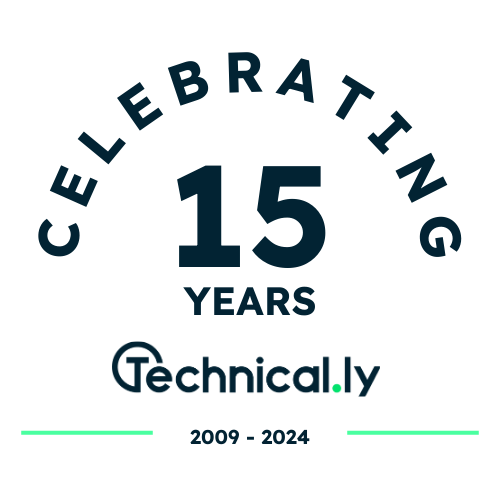“It’s like Sheffield” was my British colleagues’ summary of Pittsburgh, when they heard my AI-driven drug discovery company had been acquired by pioneering Pittsburgh-based cell biology company Cellomics in 2001. (Yes, we had AI “back then.”)
It was obvious though that while Sheffield and Pittsburgh shared a storied steel-making past, Pittsburgh was busy reinventing to capitalize on new opportunities in robotics, computing and healthcare.
In the intervening years, however, it seemed that healthcare and biotech took somewhat of a back seat as robotics, AI, self-driving vehicles and even space technology consumed the narrative — and investment dollars.
Pittsburgh as life sciences hub
Humming along in the background all along was a growing life sciences ecosystem, supported by the Pittsburgh Life Sciences Greenhouse, UPMC Enterprises, LifeX and Innovation Works, our universities (University of Pittsburgh, Carnegie Mellon University and Duquesne University) which attract billions of dollars in life-science research funding , local foundations (Heinz Endowments, Richard King Mellon Foundation, Hillman Foundation), and local angel investors and VCs.
As a result, numerous startups have flowed under our bridges from 2009 and 2024 from first-in-class precision medicine company Precision Therapeutics (now Predictive Oncology) to Knopp Biosciences (now BioHaven), Cognition Therapeutics (now public), to the more recent Novasenta, Avista, BioHybrid Solutions, Peptilogics, BlueSphere Bio, CytoAgents, gene therapy pioneer Krystal Biotech and many more.
So, by those measures, should we not celebrate Pittsburgh as a vibrant life sciences ecosystem on par with Boston, San Francisco or New York? Unfortunately, based on the number of IPOs, Pittsburgh (and indeed Pennsylvania) lag by orders of magnitude behind the biotech sectors of Massachusetts, California and New York.
While there is an argument that market cap or IPO is not the best indicator of success, it is a clear indicator of key inflection points, such as IND filing, clinical trial results and FDA approval. Simply put, not enough Pittsburgh companies have met these criteria, and we need to improve our ability to translate the rich foundational research at the universities into more companies able to meet these inflection points.
Better translation requires talent, education and smart capital
So, what does “translating better” look like and how might that impact the next 15 years of biotech here?
Firstly, talent. We lack enough talented teams with experience and a track record in successful translation in the biotech space, which is likely a legacy issue from a strong medtech sector. Encouragingly, this is changing as COVID normalized the idea of hiring remote talent from other biotech hubs who bring experiences and learning that are making a real impact.
Secondly, education. We need to educate our academic researchers in the process of getting to a drug, so that their research can be “translation ready” and more likely to lead to one of those inflection points. Pitt’s Clinical and Translational Science Institute helps educate and provides training on the process of translation, but we need a greater emphasis on practical approaches for successful translation in biotech.
Researchers would also benefit from learning the business of biotech. Great business cannot make up for poor science but many a biotech has foundered because of a poor business model, which denies patients must needed therapies.
Thirdly, smart capital. Developing therapeutics is hard, takes a long time, requires billions of dollars, and fails 90% of the time, yet success can deliver huge returns for investors. Angel or pre-seed funding has been forthcoming for local biotech from the foundations, LifeX, Innovation Works and local angels, but follow on funding (seed, Series A) has been challenging. This is due in part to lack of access to larger capital locally but perhaps more to inadequate “de-risking” of the company’s approach. As a result, more sophisticated funds shy away because there is not a clear path to successful translation.
Fortunately, this is changing as the accelerators and incubators (particularly LifeX) take a portfolio approach that integrates sophisticated due-diligence processes, helps to determine key milestones that will de-risk translation, and provides mentorship and coaching from a broad network of seasoned biotech talent.
In conclusion, I am (realistically) optimistic about the next 15 years. I think the Pittsburgh life sciences ecosystem is maturing, is continuously learning from others both inside and outside the region, and is attracting outside interest and “smart” investment dollars.
Let’s not try to be Boston or San Francisco but strive to be better by playing to our strengths!

In February 2009, Technical.ly published our first article. Fifteen years later, we're still here — but a lot has changed. We're celebrating our anniversary with a look back, and a look forward.
Join our growing Slack community
Join 5,000 tech professionals and entrepreneurs in our community Slack today!
Donate to the Journalism Fund
Your support powers our independent journalism. Unlike most business-media outlets, we don’t have a paywall. Instead, we count on your personal and organizational contributions.






